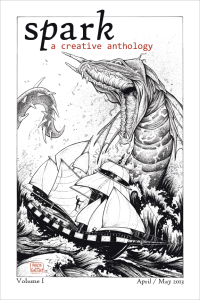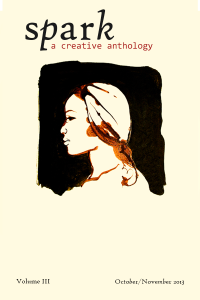[This review was posted July 19, 2012. It was unbiased at that time. Since then, I have not only continued as a member of Scribophile, but stepped into the role of Moderator for the community forums.]
A few months ago, having realized that I am unlikely to ever have time for an “in-person” writing group, I started looking for virtual or online writing groups. I figured I would check a few out, take notes, and write reviews of each site to post here on “Hey, Look! I’m a Writer!”
It turns out I really needn’t have bothered. Having compared several options and having signed up for about four different sites, there’s only one I’ve actually stuck with: Scribophile (http://www.scribophile.com).
Scribophile bills itself as “The online writing group for serious writers.” Perhaps a better version of that tagline would be, “The online writing group for people who are serious about writing,” though that doesn’t have quite the same ring to it. I was pleased to find that the members of the site are not “serious” all the time—just serious about writing.
There are a few categories I intended to compare between sites. Even though I no longer plan to review multiple sites, I can give you a quick summary of Scribophile’s ratings in those categories.
Number of authors/members on the site
This information was not actually available anywhere that I could find it. However, on the home page when you go to log in or sign up, Scribophile claims “141,235 critiques served for 21,905 works, and 377,460 posts in 15,465 threads in our writing forums.” Even if you assume that every member has posted more than one work, that still works out to several thousand members.
Requirements for Posting Writing
Like at least a couple of other sites I tried, Scribophile works on a “credit” system, where you earn credits to post your own work by providing critiques on the work others have posted. On Scribophile, these credits are called Karma, and it takes 5 Karma to post a work—so you have to get critiquing before you can even start posting! This actually accomplishes some good things, though: it ensures that new members understand what other members are posting, what the “Code of Conduct” is for making comments on other people’s writing, and what to expect when other members start critiquing the new members’ work.
It takes me, on average, two or three critiques to earn enough Karma points to post something. This is reasonable to achieve, and also ensures that every work gets multiple critiques, since almost everyone wants to post their writing for feedback.
One interesting feature is the “Spotlight” concept, where works in a spotlight earn critiquers more Karma per feedback than works not in a spotlight. A work in a spotlight will then attract more feedback, as a general rule, than a work not in a spotlight; posted writing moves through the queue from “waiting for the spotlight” to “in the spotlight” where it remains until a certain number of critiques have been completed. Then it moves out of the spotlight to make room for the next work. Marshaling writing through a queue like this means that getting your work into a spotlight where it will attract more critiques requires you to go critique the works ahead of yours to make room! Again, a great way to ensure that every posted work receives quality feedback.
Quality of Feedback
Scribophile has all kinds of members who are serious about writing, from “beginner” to “enthusiast” to “working toward publication” to “professionally published” to “professional editor.” This means that the feedback also runs at all levels—you’ll get a good idea whether people enjoy the overall plot and style, and you’ll get feedback and correction on mechanics (grammar, spelling, punctuation). You’ll also get an idea what it will take to make your work “publishable.”
The quality of feedback isn’t related to critiques, though. Scribophile also has an active discussion forum, where members ask and answer questions, some as amateurs and some as experts.
Cost
A premium Scribophile membership is $9/monthly or $65/yearly.
Is there a free membership level?
Yes! Scribophile has an ad-supported free level with nearly all the features of the paid membership—and, most importantly, access to the great community of writers.
Differences between paid/free membership (if any)
- “Scribophile Premium” members can post unlimited works at a time for others to view and critique. Free (aka “Scribophile Basic”) members can post up to 2.
- Premium members can add bold, italic, or underlined text to their posted writing, and insert pictures. Basic members cannot.
- Premium members can bypass the main Spotlight queue by posting their work in a “Personal Spotlight.” This increases the amount of time feedback on the work earns extra Karma, but it also reduces the pool of potential critiquers to those who are in Scribophile groups with you or who have flagged you as a “favorite” author.
Who would benefit from the site?
Any aspiring writer would benefit from the site. So would any professional or prospective professional writer. From enthusiast to expert, anyone who wants to write would benefit from Scribophile. There is a caveat, however: come with realistic expectations and thick skin. This is not a site full of your friends, family, and neighbors who have told you since you were twelve years old that you are a wonderful writer. If there are problems with your writing, your plot, your mechanics: you will be told, and bluntly. Luckily, if there are things that work well, passages that are eloquent, characters who are engaging: you’ll be told that, too.
Would I recommend joining?
Yes! I can’t say it any more simply than that.
Just tell them Boris sent you.




